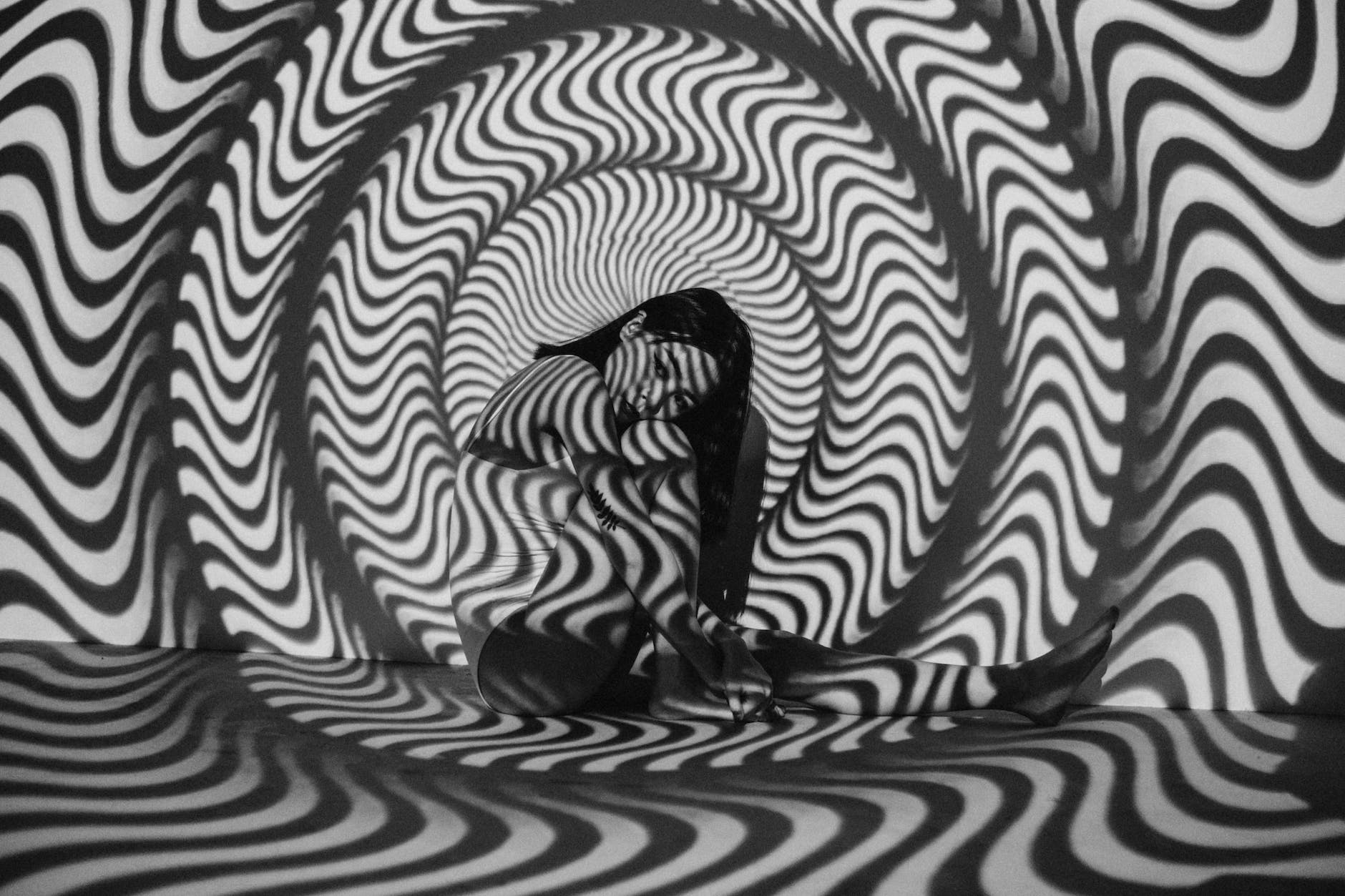Hypnotherapy: Most Effective Alternative Treatment Available

Before diving in, please note: This post is for informational purposes only. If you’d like to know more about how we approach topics, feel free to check out our friendly Disclaimer Page.
Hey there, amazing readers! 🖐️ Just a quick note: yes, we know there are a lot of ads here. Trust us, we get it—it’s not the prettiest look, but they help us keep this blog alive and kicking. Those pesky little ads cover the costs of all the behind-the-scenes magic, from hosting and tech stuff to creating content we hope you’ll love.
We’re committed to delivering quality posts, and your support (even just sticking around despite the ads) means everything to us. So, bear with us, and thanks for helping us keep the good vibes rolling. Now, on to the fun stuff! 😉
TRANSLATE BUTTON AT THE END OF THE ARTICLE
Because hypnosis impacts individuals on several levels, including the psychological, physiological, emotional, and even spiritual, in my opinion, the most effective complementary treatment is hypnotherapy.
And in all honesty, nothing else outside hypnosis is able to do it.
You can concentrate on individual difficulties one at a time, but at the same time, it can enhance your general health and well-being in numerous other areas simultaneously.
Some individuals seek out hypnotherapy in order to treat a particular issue, while others go to hypnosis in order to reap the general advantages of the practice on a consistent and continuous basis.
There are a lot of individuals who only utilize hypnosis by itself, while others combine it with other types of treatment.
Although every treatment modality has its own unique benefits, there is undeniably some degree of overlap across the various approaches to healing.
Hypnosis is able to establish a connection and physically connect those places together degree of overlap across the various approaches to healing.
Hypnosis is able to establish a connection and physically connect those places together.
This is one of its many benefits.
It makes no difference whether you are attending psychotherapy because you are emotionally stressed or physical therapy because you are healing from an accident.
Because hypnosis has the capacity to touch all of those areas in a beneficial manner, it may be used as an adjunct to any of those other therapies or even both of them.
Therefore, in conjunction with your physical treatment, it may help you deal better emotionally with the burden that the injury is causing in your life.
There is a specific technique for addressing your physical need for nicotine if you are trying acupuncture to help you stop smoking, but acupuncture on its own is not very effective in addressing your psychological craving or the mental struggle that arises when you are first trying to break any pattern of long-standing, habitual behavior.
When it comes to satisfying the psychological urge for relief, hypnotherapy may serve as a useful adjunct to acupuncture.
The impact of aromatherapy is yet another great illustration of how combination therapies may be used.
After receiving an aromatherapy massage, I can say without a doubt that I was lulled into a state of complete relaxation.
It was a wonderful experience all by itself, and as a result, I was able to induce hypnosis in myself.
It may be effective on its own, or it can be utilized as an aid in generating hypnosis.
Either way, it’s a win-win.
Hypnotherapy makes use of a variety of different models that individuals are currently using, but when combined with hypnosis, these models become far more effective.
The vast majority of treatments are effective in bringing about the desired change in a particular domain.
Simply put, hypnotherapy promotes change in a wider variety of domains.
Due to the fact that this treatment is so effective on its own, in addition to being a good complementary therapy, it is an outstanding treatment for a wide variety of diseases, whether they are particular or mixed.
It is essential to keep in mind that the purpose of hypnotherapy is not to take the place of contemporary medicine or to cast doubt on the efficacy of current medicine in any way.
You may decide to utilize hypnotherapy on its own rather than conventional treatment for whatever problem you are attempting to cure, and that is a personal decision that anybody is free to make; nevertheless, it is not our responsibility as hypnotherapists to replace conventional treatment, nor do we claim that hypnosis could ever do so.
Alternative medicine, which is used rather often in modern times, is in a good position to give individuals a new approach to handle their health difficulties since it is utilized so frequently.
It provides stand-alone therapies that, if coupled with conventional therapy, would immediately clash with the traditional treatment and cannot be used safely or successfully.
This positions it in opposition to traditional medicine.
Hypnotherapy is in no way comparable to those other approaches in any way, shape, or form.
Hypnotherapists are not in competition with physicians or other medical professionals, and we do not recommend that someone give up seeing their regular doctor in favor of hypnosis.
On the other hand, I think that hypnosis makes for a wonderful complement to contemporary medical practice.
Discover "SUPERFOODS: The Key to Health and Balance🥗" 🌿🌺
We have a common tendency to overlook the fact that hypnosis has been used for a significant amount of time by medical experts and other health care specialists, such as psychologists.
It in no way compromises the efficacy of today’s therapeutic methods.
Instead, it may complement it in a way that is both pretty natural and highly successful.
If you are attempting to stop smoking, for example, hypnotherapy on its own may be of tremendous assistance, but if you combine it with the patch, your chances of successfully quitting are significantly increased.
There is no competition between the two treatments since they complement each other quite well.
If you are currently undergoing treatment for a medical illness and are finding that the side effects are difficult to manage, you may want to consider hypnotherapy as a means of reducing the severity of the side effects and increasing your tolerance of the drug.
This will allow the treatment to be more effective in treating your condition.
The use of the term “alternative” implies that we are searching for a different approach to completing tasks.
Were not.
We are looking at ways to enhance the physical and mental health of anyone and everyone who requests our assistance and might benefit from it.
I feel that this is already being accomplished by contemporary medical practice.
In addition, I think that hypnotherapy is the best kind of complementary treatment and that it may be helpful in a wide variety of situations.

The Enlightenment Journey is a remarkable collection of writings authored by a distinguished group of experts in the fields of spirituality, new age, and esoteric knowledge.
This anthology features a diverse assembly of well-experienced authors who bring their profound insights and credible perspectives to the forefront.
Discover "Sports Nutrition: The Importance of Nutrition and Exercise for Overall Health 🥗🏋️"
Each contributor possesses a wealth of knowledge and wisdom, making them authorities in their respective domains.
Together, they offer readers a transformative journey into the realms of spiritual growth, self-discovery, and esoteric enlightenment.
The Enlightenment Journey is a testament to the collective expertise of these luminaries, providing readers with a rich tapestry of ideas and information to illuminate their spiritual path.
Our Diverse Expertise 🌟
While our primary focus is on spirituality and esotericism, we are equally passionate about exploring a wide range of other topics and niches 🌍📚. Our experienced team is dedicated to delivering high-quality, informative content across various subjects ✨.
To ensure we provide the most accurate and valuable insights, we collaborate with trusted experts in their respective domains 🧑🏫👩🏫. This allows us to offer well-rounded perspectives and knowledge to our readers.
Our blog originally focused on spirituality and metaphysics, but we’ve since expanded to cover a wide range of niches. Don’t worry—we continue to publish a lot of articles on spirituality! Frequently visit our blog to explore our diverse content and stay tuned for more insightful reads.







